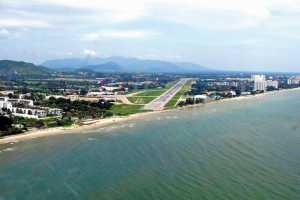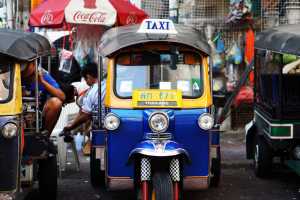
Airlines struggle with rising costs
14th Jul 2022

To sustain positive momentum in the domestic market in the face of high operational expenses, airlines are battling to keep prices in check and are pleading with the government for assistance in easing their financial load.
The head of commercial operations for Thai Lion Air (TLA), Nuntaporn Komonsittivate, said that the price of gasoline is the most important factor because it makes up about 35 percent of the airline's operating costs, up from 30 percent before the price increase.
Even though oil prices have just started to go down slowly, the aviation industry won't be able to benefit right away.
The airline must await details on rates, which may decrease next week.
Ms. Nuntaporn said that the occupancy rate for the upcoming vacation from July 13–17 has already gone over 70%. This is due to popular religious event sites like Ubon Ratchathani, which has an annual candle festival at the start of Buddhist Lent, as well as Phuket and Hat Yai.
She stated, however, that poor purchasing power may not impede travel choices because Thais often plan vacations in advance and book inexpensive flights to save money.
She said that the government should think about giving airlines financial help, like lowering airport parking and landing costs, to help their businesses grow.
"There is no way for airlines to increase tickets and simply shift the additional cost to customers. To ensure robust aviation traffic, the government must assist us in lightening the load," Ms. Nuntaporn stated.
The average load factor for the month of July is expected to be 75%. However, since it is still off-season, the number of tourists expected for the whole third quarter may be lower than expected.
Thai Lion Air had to change the number of flights to match actual demand and work with the Tourism Authority of Thailand to get more people to come.
As a result of the epidemic, the airline is unable to provide steep discounts or reserve a large number of tickets for special pricing, as the number of available seats has been drastically decreased.
Wutthiphum Jurangkool, the CEO of Nok Air, says that lowering the excise tax on jet fuel to 20 satang per litre until the end of the year can cut operational costs by 500–600 million baht in the second half.
The airline has to keep an eye on both oil prices and the exchange rate, because if the baht loses value against the U.S. dollar, oil prices will go up even more.
Even though the price of fuel is going up, Nok Air can't raise ticket prices because other airlines are competing on price.
Teerapol Chotichanapibal, the chief commercial officer of Nok Air, said that people will still fly as usual, but that the economic downturn will make people fly less often.
In the meantime, a rise in COVID-19 cases with the BA.4 and BA.5 sub-variants might not change how people feel about travelling if more people get booster shots.
Nok Air had a load factor of 80% for the coming holiday, even though it had almost 100 domestic flights every day.









